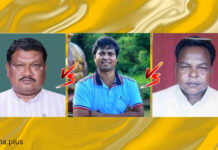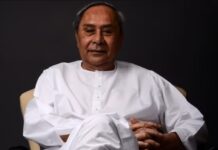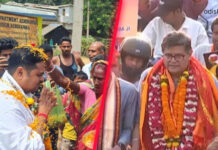Kailash Chandra Dash
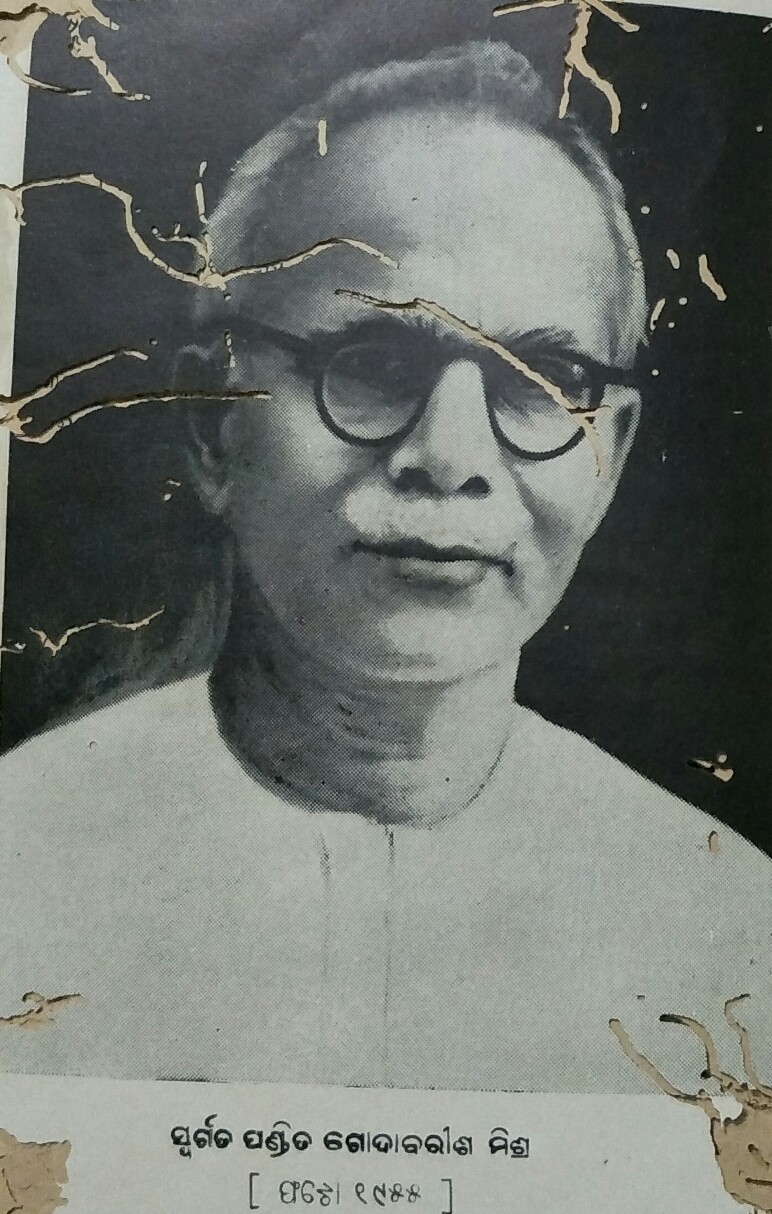
On 26th October 1886 was born Godavarish Mishra, famous teacher of SatyabadiVanaVidyalaya, the founder of BanapurVanaVidyalaya, the great Gandhian activist and the organizer of the odia movement in the scattered and excluded Odia tracts and the famous Minister of Education during whose time Utkal University came into being. He was also the famous leader of the Odias during the tumultuous Boundary Expansion Movement. An interesting assessment of Godavarish Mishra was made by NatabaraSamantaray, the famous critic of Odia literature in his essay entitled Dharanidhara O Mu Chhasapua which was published in Dagara. In that essay Samantaray reminded us on the extra-ordinary poetic skill of Godavarish Mishra whose poems Dharanidhara and Mu Chhasapua were well appreciated by AnantaPattnaik, the left leader of the 1950s. His autobiography ArddhaSatabdiraOdisha O Tahire Mo Stanareveals many interesting aspects on Odisha before independence.
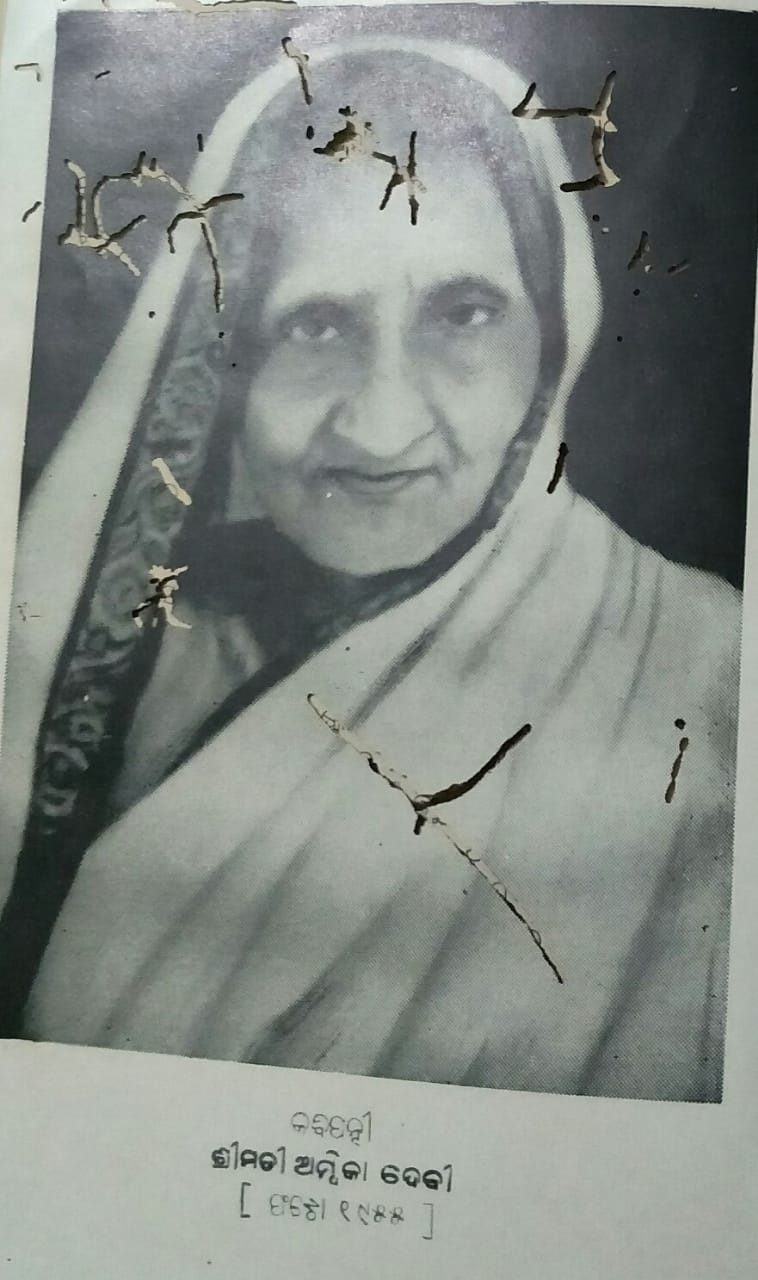
Godavarish was born in Srinibaspur of Banapur and got education in Banapur and PuriZillaschool. While a student in PuriZillaschool he came in contact with the famous revolutionary SashibhushanRaichaudhury of Bengal who was in Puri then for organising seditious activities. He got revolutionary ideas from him through a proscribed book named Deser Katha. This Sasida was the first to imbibe patriotic feeling in him before he was inspired by Pandit Gopabandhu Das for national mission. His teacher Chandra Mohan Maharana also helped him to shape his literary career when he was a student. He studied in Ravenshaw College from 1906 and then also he was active with social works through his BagabatiPrasadiniSamity in Banapur. In 1907 he came in contact with the famous revolutionary Khudiram Bose who was in Cuttack then for spreading seditious ideas. He was also an active member of Young Utkal Association of Gopabandhu in 1908-1909. While a student in Ravenshaw College he came in contact with ViswanathKar and his literary activities began with UtkalaSahitya edited by ViswanathKar. He became famous for his role in the drama of Shakespeare which was Julius Caesar which was staged in Ravenshaw College. In 1910 he went to Calcutta University for MA in Economics. In Calcutta he was associated with revolutionary activities. In 1913 he returned to Odisha and soon joined Satyabadi School. He was also a great Gandhian activist and participated in the non-cooperation movement. He also became active from 1919 as an Odia nationalist for the amalgamation of Odia speaking areas in Singhbhum with Odisha.
An important work of Godavarish in 1920s was his role in organising students for Odisha- in- making. He was the president of All Orissa Students Conference at Ravenshaw College Cuttack on 10th and 11th August 1924. This Conference had its origin in 1907 since the time of Kendrapara flood. The Conference was intended to provide opportunities to all the students of Odisha to give their best thoughts once in a year for their physical, intellectual, moral and social improvements. The activities of the Conference were suspended since 1920 and it was revived in 1924. The president Godavarish Mishra had an eloquent address explaining the duties of the students. He said that the Conference was suspended in the past because the students had no enthusiasm in this respect. He further stated the Odias could not command respect outside Odisha as their brothers were only employed as coolies and house servants outside Odisha and that the people of Odisha were judged according to them. The population of Odisha was decreasing gradually and if it continued at the present rate Odisha would be depopulated within 50 years.The decrease was due to flood, famine and starvation. The education imparted to the boys and girls in schools and colleges was defective and it entirely neglected the soul.No better substitute was found. Mental culture was equally defective. Education to him was costly and the general public could not afford to pay for the education of their children. His address was meaningful and was well-appreciated.
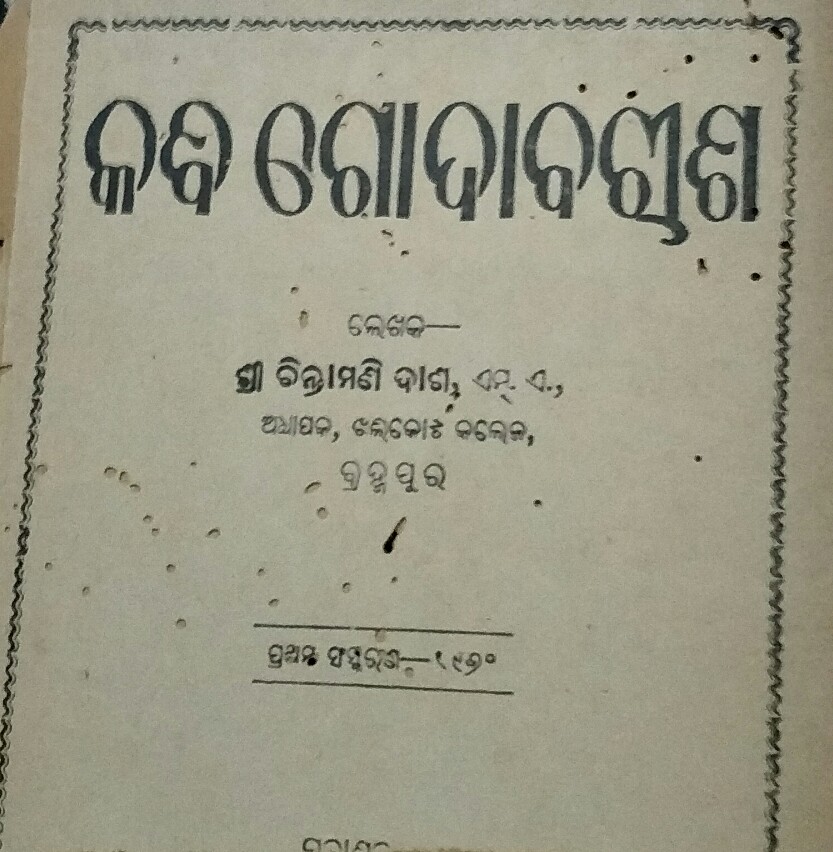
He had multifarious activities from 1930 till his death. His literary career was remarkable for outstanding works like Alekhika, 1817, Kisalaya, Kalika and Gitayana. He was the first writer on Indian folk tales from Odisha. He was the first English translator as he had translated Odia poem ChiraJuhar of BalakrushnaPattnaik into English in 1930s which was named as Eternal Bow. It was a successful translation and was well appreciated. He was the scrinned editor of Niakhunta in the beginning from 1937 although the real edior was GodavarishMahapatra. We have important works on Godavarish Mishra like his biography by RadhaCharan Panda, KabiGodavarish by Chintamani Das,BanapurVanaVidyalaya by HariharaMahapatra and the recent work entitled Godavarish Mishra by Professor ManoranjanPradhan. His Granthavali divided into four parts were published by Cuttack Students Store in the 1960s and they are now also digitized by Srujanika of Bhubaneswar. Kabi and activist Godavarish still need more studies as he was a great marker of Odia identity. The last impressive work of Godavarish was his association with the Boundary Expansion Movement in Odisha in 1955-56.On 11th October 1955 therewas a special session of the UtkalaSammilani at Brahmapur for boundary expansion of Odisha. PanditGodavarish Mishra was the president. He had in his presidential address pointed out the great injustice done by the States Reorganisation Commission for Odisha in that report. His long address in that session demanded the solution of the problems of the Odias in the provinces of Bihar, Madhya pradesh and West Bengal.There was also a long debate on the report of the States Reorganisation Commission in the Orissa Legislative Assembly on the 26th and 28th November 1955. A number of members had participated in the debate. Godavarish Mishra in that Assembly Hall said-”We all know what amount of disappointment the report of the Commission has caused all over Odisha. I presume the Ministers have felt it as deeply as the general public. The public have expressed their disappointment and consequent resentment on hundred platforms.xxx The Commission have done injustice to Odisha in their deliberations. We did not know whether they have done this under the pressure of circumstance, or they have not read the whole thing,or to please someone or for any other reason. They have said that they did not know that the Hos of Singhbhum are anxious to come away to Odisha. But fifteen days back the Hos in their memorandum have demanded for merger in Odisha.They have tendered evidence,called meetings,and did all that they could do to achieve this. In spite of that if any body pleads his ignorance to the fact that the Hosare in favour of merger in Odisha,then that will be a serious blunder. Our Finance Minister said that we should speak in respectable language. He has spoken in respectable language. For this the aim could not be achieved. Probably our language became so respectful that all turned deaf ears towards us. We are also going to use the same respectable language over our present disappointment. A single page of the Report was burnt and that has been raised in the discussion. I proposed an amendment to the effect that let us all resign,so that it will have pressure on the Government. If we sit tight and do not do any work it will create deadlock. This is the only constitutional way I wanted you to adopt. There is no doubt that there are persons of very high order in the Commission. I cannot say if efficient and wise people always do the correct thing. The attributes of the wise consist in their capacity to cut down a poisonous tree within two days whereas fifty ordinary people could hardly finish it within tendays. Accordingly they will require no time to cut down a good thing. The Finance Minister said in his speech that he did not appreciate certain actions of the members of the Commission. He spoke this very politely. I would also like to speak in the same respectable language. Sri FazlAli,the Chairman of the Commission,remained aloof towards the end. He said that he will not give any opinion with regard to the boundary disputes between Bihar and Odisha and between Bihar and West Bengal. Was he not aware before accepting the Chairmanship that he will have to say something in this regard? But what is the reason of remaining aloof like this ? He could have resigned from the Commission and that would have been better. Instead of doing that why he left the whole matter to the decision of two members of the Commision? He was our Governor. But he remained silent over our matters.While going through the report of the Commission one would curiously mark where the first sentence at its page 99 begins. The sentence reads like this:”The last of territorial units in respect of which proposals for reorganisation have to be considered is Orissa”. But why the case of Orissa has been taken up at last? Did the Commission visit Orissa at last? Is Orissa the smallest among all States? What can be the reason for considering the case of Orissa at last? Who asked them to consider our claims in the last after making distribution in respect of others? What has been its consequence? At last they have recommmended for the merger of Purulia with West Bengal. Since they had decided that Purulia should go over to West Bengal they could find no way to recommend for the merger of Sareikella and Kharswan with Orissa. But why did you at all decide like that? You had altogether forgotten the case of Sareikella and Kharswan while taking this decision. If you had recommended for the integration of Purulia with West Bengal you should have left a corridor through Purulia and that would have satisfied the Biharis. The Oriyas would also have been satisfied. In stead of doing that they recommended for the merger of Purulia with West Bengal and when our claim was raised they said that in the absence of a suitable corridor it is not possible to accede to your claim. They say that if Sareikella and Kharswan were transferred to Orissa there would be no direct communication between Dhalbhum and Bihar. But where is the necessity for such a communication? As a matter of fact Dhalbhum belongs to Orissa. Even now the highest percentage of population of Dhalbhum is in the order of (I) Oriya,(II) Bengalees,(III)Biharis,(IV)People speaking other languages. Thus it would be seen that the Oriya speaking population formed the majority. So where is the difficulty to transfer this tract to Orissa? Where does the question of providing a corridor to Bihar arise? We do not know from which stand-point the Commission have considered these matters. But it is a fact that they have paid the least attention to the claims of Orissa.
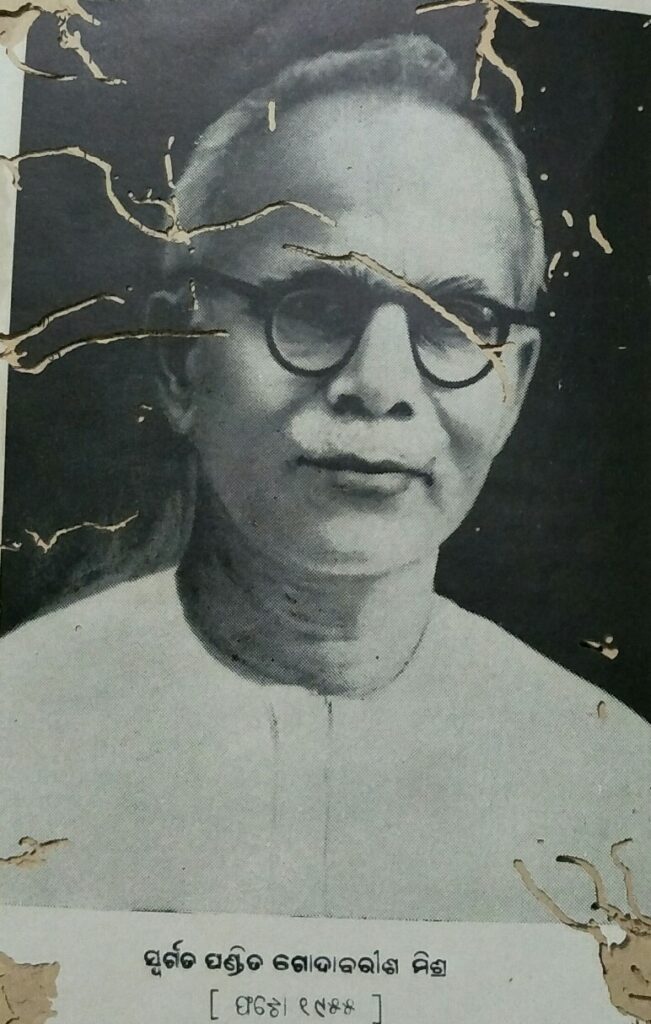
The Commission have said that they did not find sufficient reasons to merge the Singhbhum district with Orissa. They have quoted the report of the O`Donnell Committee on the strength of which they arrived at such decision. Twentyfive years ago the O`Donnell Committee had reported against the merger of Singhbhum with Orissa and that we also admit. It is to be ascertained what he said Committee made such recommendations. It might be that the British Government wanted them to make such recommendations in consideration of the political motive changing from time to time. It was suspected that the British were out to create a separate state for Jharkhand and keep that under their control. But now it has been decided finally by the authorities that there should be no such state as Jharkhand. No body wants to create new problems in the country by bringing such a new state into existence. But why did the Commission bring in the O`Donnell Committee Report? The past reasons for agitation no longer exists. It is nor proper on the part of the Commission to reject Orissa`s claim on Singhbhum on the strength of the O`Donnell Committee Report. The Commission have not at all tried to understand the question of Sareikella and Kharswan. Then how could they examine the documents and papers relating to these areas? It is doubtful whether they have thoroughly examined the memoranda and other papers placed before them. It is not known what they understood while taking evidence here. But the Commission while taking the evidence are reported to have expressed their view before some people that Orissa would get Sareikella and Kharswan. What happened thereafter God knows alone. It is one of the wonders of the world how their views changed subsequently.” In this way Godavarish had strongly pleaded for the amalgamation of Sareikella and Kharswan with Odisha on various grounds. His address in the Assembly Hall in 1955 regarding the report of SRC was a rare articulation of Odia identity.


